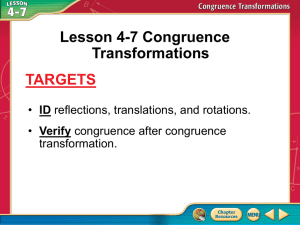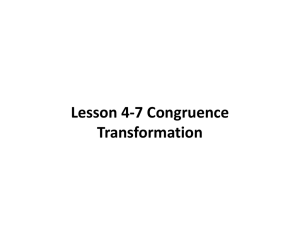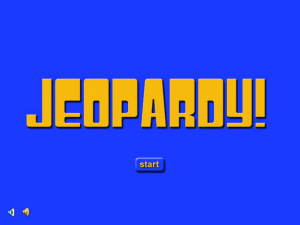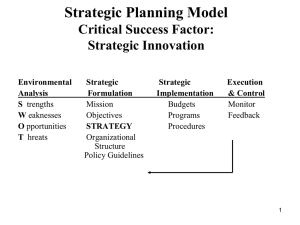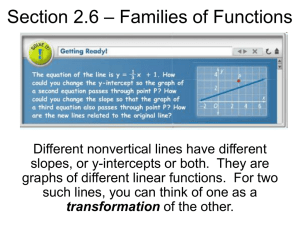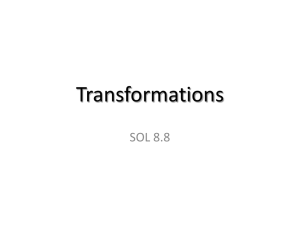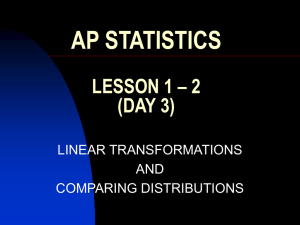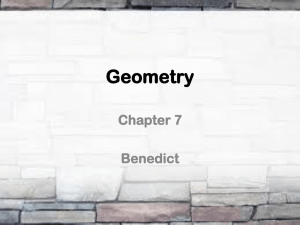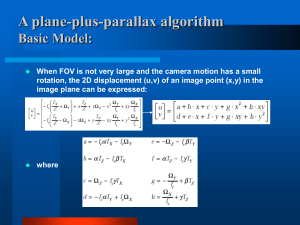Congruence Transformations
advertisement
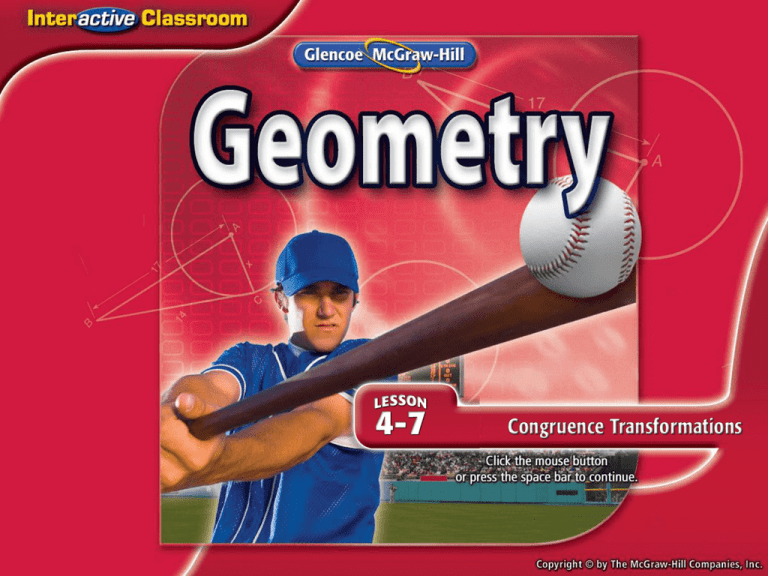
• Transformation is an operation that maps an original geometric figure (called a preimage), onto a new figure (called the image). • A congruence transformation (also called a rigid transformation or an isometry) is a transformation that creates an image that is congruent to the preimage • Reflection • Translation • Rotation Identify Congruence Transformations A. Identify the type of congruence transformation shown as a reflection, translation, or rotation. Each vertex and its image are in the same position, just 5 units right and 2 units down. Answer: This is a translation. Identify Congruence Transformations B. Identify the type of congruence transformation shown as a reflection, translation, or rotation. Each vertex and its image are the same distance from the origin. The angles formed by each pair of corresponding points and the origin are congruent. Answer: This is a rotation. Identify Congruence Transformations C. Identify the type of congruence transformation shown as a reflection, translation, or rotation. Each vertex and its image are the same distance from the x-axis. Answer: This is a reflection. A. Identify the type of congruence transformation shown as a reflection, translation, or rotation. A. reflection B. translation C. rotation 0% D 0% C 0% B A D. none of these 0% A. B. C. D. A B C D B. Identify the type of congruence transformation shown as a reflection, translation, or rotation. A. reflection B. translation C. rotation 0% D 0% C 0% B A D. none of these 0% A. B. C. D. A B C D C. Identify the type of congruence transformation shown as a reflection, translation, or rotation. A. reflection B. translation C. rotation 0% D 0% C 0% B A D. none of these 0% A. B. C. D. A B C D Identify a Real-World Transformation BRIDGES Identify the type of congruence transformation shown by the image of the bridge in the river as a reflection, translation, or rotation. Answer: The image is a reflection, with the line at which the bridge meets the water as the line of reflection. B. translation C. rotation 0% B D. none of these A 0% A. B. C. D. A B C D D A. reflection C GAME Identify the type of congruence transformation shown by the image of the chess piece as a reflection, translation, or rotation. 0% 0% Verify Congruence after a Transformation Triangle PQR with vertices P(4, 2), Q(3, –3), and R(5, –2) is a transformation of ΔJKL with vertices J(–2, 0), K(–3, –5), and L(–1, –4). Graph the original figure and its image. Identify the transformation and verify that it is a congruence transformation. Understand You are asked to identify the type of transformation—reflection, translation, or rotation. Then, you need to show that the two figures are congruent. Plan Use the Distance Formula to find the measure of each side. Then show that the two triangles are congruent by SSS. Verify Congruence after a Transformation Solve Graph each figure. The transformation appears to be a translation 6 units right and 2 units up. Find the measures of the sides of each triangle. Triangle ABC with vertices A(–1, –4), B(–4, –1), and C(–1, –1) is a transformation of ΔXYZ with vertices X(–1, 4), Y(–4, 1), and Z(–1, 1). Graph the original figure and its image. Identify the transformation and verify that it is a congruence transformation. 0% A D. 0% 0% 0% D C. A B C D C B. B A. A. B. C. D.
